Don't Close The Book Just Yet: Why 'The Final Chapter' Won't Be The End Of The Resident Evil Franchise
Here is exactly why The Final Chapter is far from being the final Resident Evil film for Raccoon City and a rock-punching Redfield.
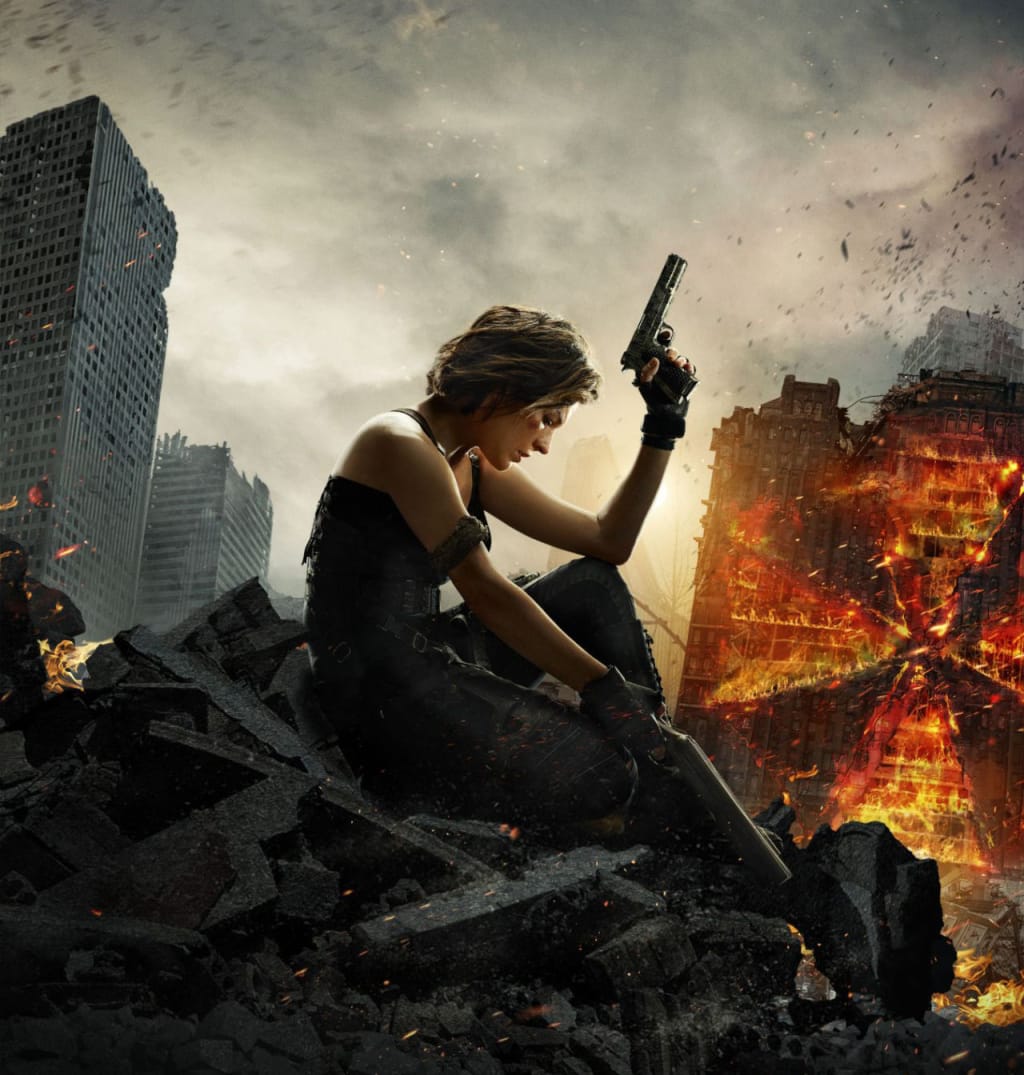
Well, the T-Virus may have been given the flu shot while the evil schemes of the Umbrella Corporation go out to pasture, but the story from #ResidentEvil feels far from over. Scooping up a big gooey handful of brains and over $1.15 billion at the box office, #SonyPictures would be mad to let 2017's Resident Evil: The Final Chapter film be the "final" nail in the coffin.
As Paul W.S. Anderson and his wife #MillaJovovich shut down Project Alice after 15 years of being the king and queen of the #zombie apocalypse, fans are hammering at the door with hatchets to see where the franchise could go next. With a continuing game series and its tie-in animated films, the #Capcom counterparts to Anderson's live-action entries show no signs of going anywhere. Whether it be a direct sequel, a reboot, or even a move out of cinemas, Resident Evil has the potential to still cause a global pandemic. While we may not need to hear "My name is Alice" another time, here is exactly why The Final Chapter is far from being the final Resident Evil film for Raccoon City and a rock-punching Redfield.
Warning: Spoilers for Resident Evil: The Final Chapter and Resident Evil VII ahead!
Game On
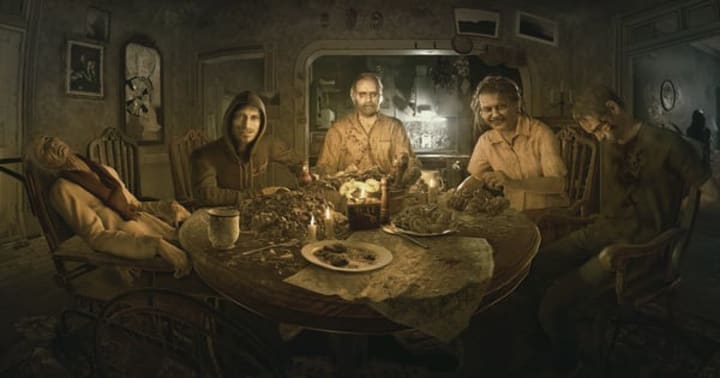
'Resident Evil VII' [Credit: Capcom]
So, how can we keep the rotting flesh of the undead fresh for audiences after 2017? The popularity of Resident Evil VII and a "return" to what made Resident Evil one of the scariest games ever should be a marker of what Sony should aim for. A back-to-basics approach that sends a small team of mercenaries or S.T.A.R.S. agents into a zombie outbreak must be the way forward. Recent zombie flicks like Train to Busan and The Girl with All the Gifts are testament to how a small setting with an even smaller cast is what Z-heads are looking for. Elsewhere in the #horror world, you can notice a shift away from big-budget action horror in favor gritty indie films like Get Out and Green Room.
While the later films and games were a massively grand affair, let's not forget the origins of evil in 2002 with Anderson's Resident Evil. After the destruction of Raccoon City in the video games and Resident Evil 3: Nemesis, it looked like Capcom didn't know where to go, but thankfully they threw a curveball with Resident Evil 4 by proving it isn't just zombies that make the survival horror scary. Sadly the fifth and sixth games were accused of forgetting their rotting roots by focussing too much on a cinematic approach, while the seventh game seemingly took that feedback on board. Certainly the films could (at times) be accused of being guilty of the same crime of action over development, but it is a fine balancing act.
When Raccoon City was destroyed in Resident Evil: Apocalypse, the world expanded at an exponential pace, and as the action kicked it up a notch, Anderson's films lost the element of claustrophobia that made the first film so groundbreaking. Seeing Alice and her sisterhood of the traveling clones lay waste to Umbrella's worldwide facilities was always a highlight of the films, but some fans missed the confines of the Hive, so a move backward could represent a move forward. With the upcoming animated Resident Evil: Vendetta dubbed as a "new generation" for that side of the franchise, and RE VII following suit, where is the live-action equivalent?
Twist The Knife
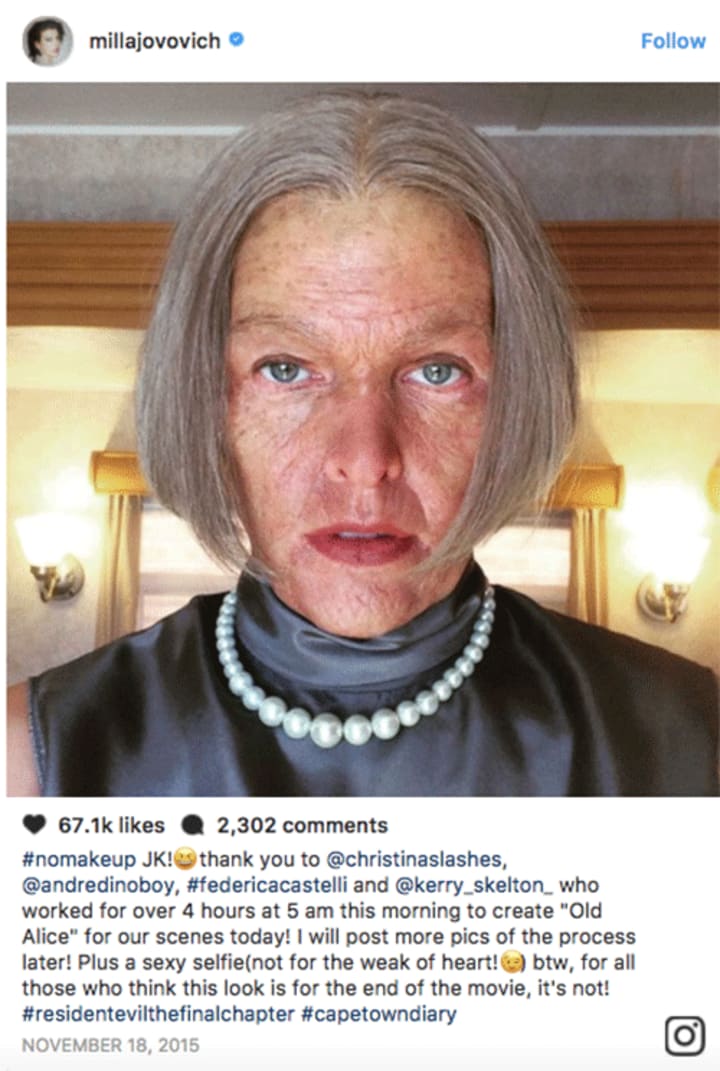
Image via Instagram
Mainly, you need to shock by giving us something new. The Final Chapter had pulled the wool over our eyes for the past 15 years, giving the big reveal that "our" Project Alice was little more than another Umbrella Clone. OMG, WTF!
The Final Chapter may have been light on returning cast members, but the triumphant restoration of Iain Glen as Dr. Isaacs was a great surprise for the sixth film, whereas the tired trope of "he's a traitor" featured in nearly every film. Audiences need something else to entice them in, so, if there were to be a seventh film, or a reboot, we need at least one big WOW moment. The films became slightly formulaic as we always knew that Jovovich's Alice would definitely be back for the next film, while pretty much everyone else was dispensable. Jovovich lead the Anderson chapter with ease, but perhaps it is time that she handed over the reins. Back to Resident Evil VII, it delivered two killer twists with the reveal that evil entity Eveline was in fact the old lady in the wheelchair, coupled with the mysterious appearance of the Redfield character. While we are promised to find out more in the DLCs, fans are still speculating on who Redfield is and what his motive is, whereas The Final Chapter didn't leave us with many questions to warrant a seventh film.
Resident Evil games were always great at delivering morally ambiguous characters, while the films tended to stick with a black and white cast of good or bad. With a huge number of actors, sometimes characters were lost under bigger names or returning faces, which may have had something to do with the fact that we effectively only had around 12 hours to explore Sony's entire Resident Evil universe over the six films. However, if you take the likes of 24, or LOST, we were often found rooting for a character, only to find out they had ulterior motives all along somewhere way down the line. This leads neatly onto what the series could do next. With a sprawling 10-hour saga of a TV series (or longer), a Resident-reboot could delve much deeper into what makes the characters tick.
Netflix and Kill
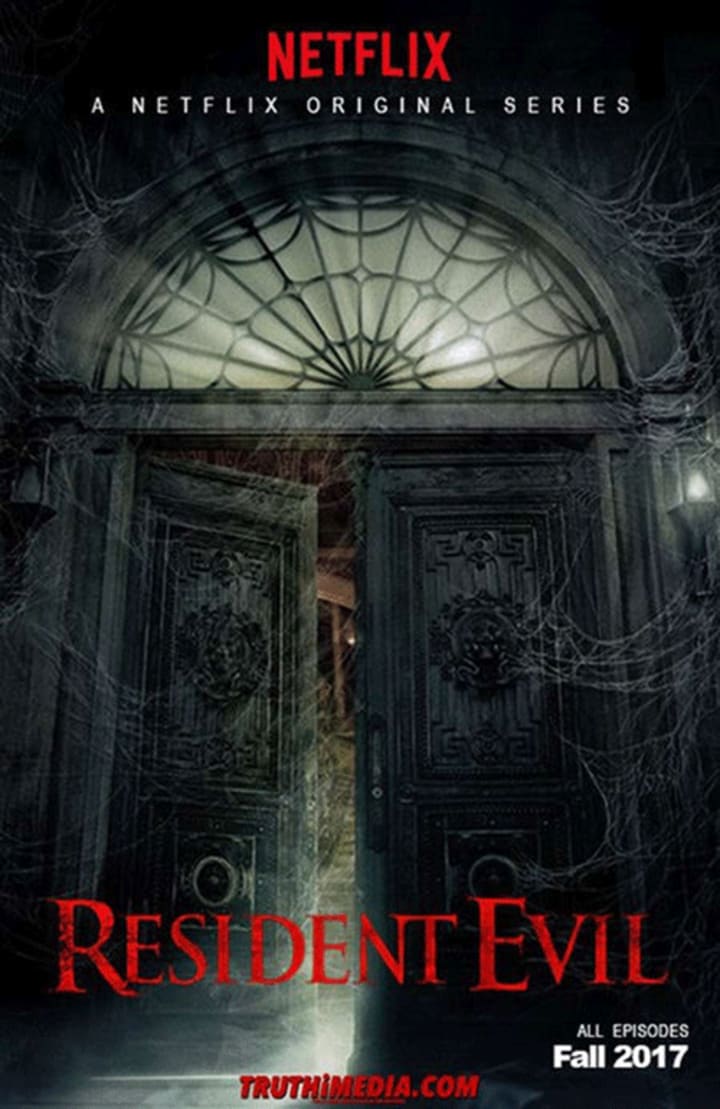
[Credit: Reddit]
When a faux poster for a #Netflix series surrounding Resident Evil went into circulation, my love of the series was reanimated quicker than Albert Wesker. As Anderson's series carved its own path in cinemas, more and more elements of the games fell by the wayside. A live-action series in conjunction with Sony could be double your money for the already stellar box office takings. By going back to the start with a series that focuses on Capcom's original game, you can cash in on those who loved the game series AND those who are now in love with the films. The Final Chapter certainly tied off proceedings with a big undead bow, but with Wesker being the only character from the first game making it into the sixth film alive, fans were rightly vexed that we never got to say goodbye to the likes of Jill or Leon.
Secondly, for all of Anderson's efforts, a lot of elements and characters were left out of his universe. Take for example 1996's Brad 'Chickenheart' Vickers and Rebecca Chambers, both of whom never made it into the filmverse, while Barry Burton was reduced to a minor role (played by Kevin Durand) in Retribution. 2002's dip into the Spencer Mansion was an all-too-brief affair before we expanded the world of Umbrella, meaning that by the time we got to Extinction in 2007, the series had gone too far to return to its atmospheric roots. Just look at the success of From Dusk Till Dawn: The Series as testament to how a franchise can be reinvigorated by starting again on the streaming platform. If a Netflix series that retraced the Spencer Mansion was anything like the Gamecube reimagining of the first game, it sounds like a recipe for success!
The 'Final' Nail In The Coffin
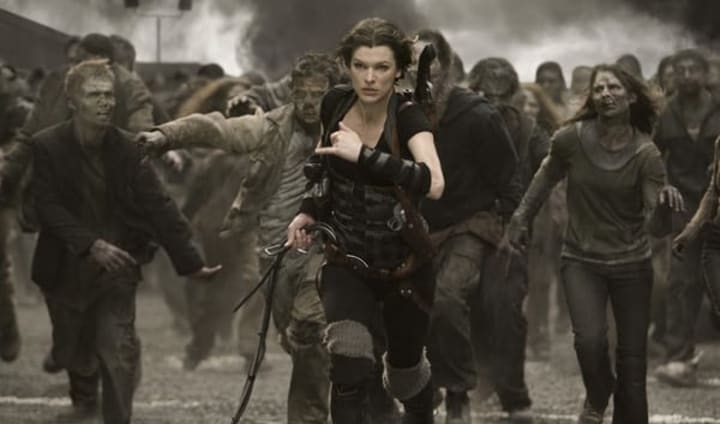
'Resident Evil: The Final Chapter' [Credit: Screen Gems]
Even if a move onto the small-screen isn't on the cards, another film could be just as likely. I have said it before, and I will say it again, final never means final. The Saw, Friday the 13th, and A Nightmare on Elm Street series have all lived long beyond their final installment; admittedly they were all met with middling success (we will wait and see with Saw), but Resident Evil has all the tools to buck the trend. If The Final Chapter really was the end of the road, then why are we all still talking about it?
Admittedly, the film may have come up short in America (scaping $26.7 million off a $40 million budget), but the franchise kills it overseas. Each and every Resident Evil film has continually improved performance outside the USA, meaning that The Final Chapter is (currently) performing with a stellar $26,654,695 worldwide. But wait, that still isn't taking into account The Final Chapter's record-breaking figures in China and a whopping $94.3M - that is the kind of money you can't simply put down with a bullet to the brains.
Look back to 2009, a time when we only had three Resident Evil films under our belts. Anderson was reportedly wrapping his involvement in the series after Extinction, which formed the third part of his trilogy and #ScreenGems were planning on rebooting the series by creating Resident Evil Begins - you can only imagine would've been closer to the first game. However, with Extinction's success, Anderson game back for Afterlife, which actually turned out to be the highest-grossing film in the franchise, and the rest is history.
While I say leave Alice on her motorbike, facing Kipepeo's at the end of the world, we should load up the shotgun, cast a new Jill Valentine (sorry Sienna Guillory), and kick some Crimson Head zombies with a Resident Evil Zero. As the most successful game-to-film franchise in the world, and the sixth film pushing the films into the Top 10 highest-grossing horror franchises, only a braindead zombie would leave Resident Evil rotting in the remains of Raccoon City.
About the Creator
Tom Chapman
Tom is a Manchester-based writer with square eyes and the love of a good pun. Raised on a diet of Jurassic Park, this ’90s boy has VHS flowing in his blood. No topic is too big for this freelancer by day, crime-fighting vigilante by night.






Comments
There are no comments for this story
Be the first to respond and start the conversation.